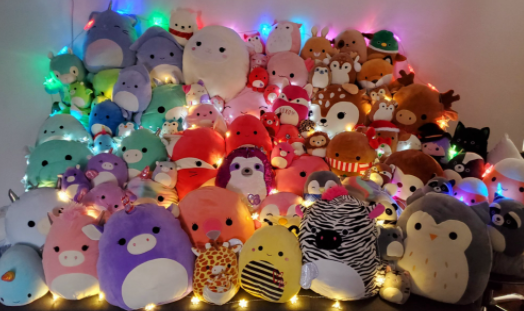Pandemic popularity of squishy toys in America is a symbol of the drought of touch worldwide.
Felt on the skin Which child doesn’t like toys soft, furry and squeeze-able? But that’s not the only reason for the soaring sales of squish mallows, a line of American soft toys that was launched in 2017. Since the coronavirus took over our lives, the candy-colored fur balls have been popping up in bedrooms of American teenagers and adults, besides launching a thousand Tik-Tok and Reddit memes and videos.
To buy our online courses: Click Here
Their pandemic popularity boils down to a simple fact, They are there when you need a hug. This epidemic has forced us out of many habits, from the frantic morning run to office or school to small talk with strangers. But its deprivations we have felt, most of all, on our skin. A regimen of social distancing and a suspicion of surfaces — that we have been living with for over a year now — has deprived us of the comfort of touch.
Read More: Recalibrating India-Taiwan ties
Touch, like all other senses, is essential to how we experience the world. But more than sight or hearing, it is the gateway between the self and other living beings. Humans are wired to touch and reach out and acknowledge other lives, whether it is yapping dogs or cuddly babies. That is, perhaps, why societies invested in hierarchies tend to police it the most, whether by restrictions of caste and race or notions of purity.
The pandemic has played along in these restrictions all too well. It has made us distrustful of the familiar textures of life, and a plastic sheath, gloves or face shields, now stands in for us in our everyday life. This drought of physical contact takes a toll on the body, but also the mind, deepening loneliness and depression.





